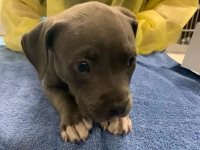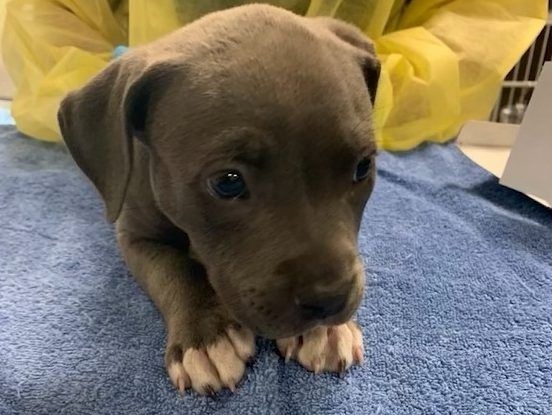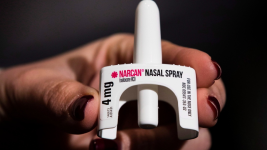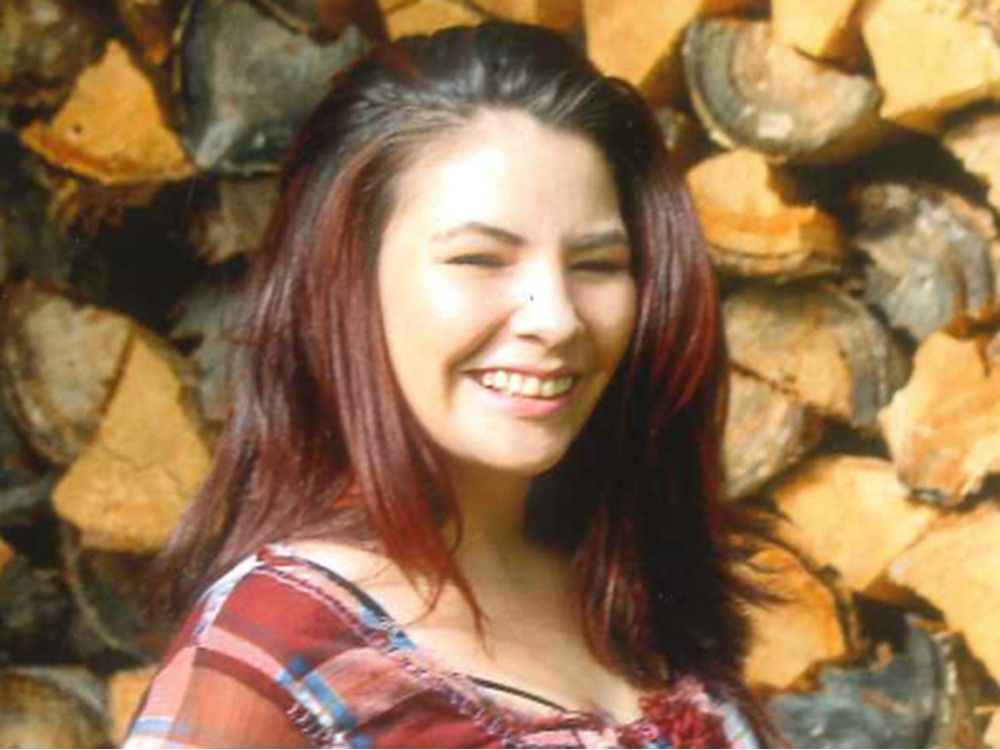Rock n roll and residential schools.I just don’t understand somebody’s motivation to roll those dice is all. If you need something mind altering, there is safer old school methods that don’t involve death.
Fentanyl
- Thread starter petros
- Start date
You are using an out of date browser. It may not display this or other websites correctly.
You should upgrade or use an alternative browser.
You should upgrade or use an alternative browser.
Mind, I'm not convinced evolution needs a helping hand from the Canadian government. Guess they thought they'd go needle exchanges one better.Yes. Especially if in Cowichan.
Addiction is a monster.I just don’t understand somebody’s motivation to roll those dice is all. If you need something mind altering, there is safer old school methods that don’t involve death.
They make good sweaters .Yes. Especially if in Cowichan.
Weaponizing addiction.Mind, I'm not convinced evolution needs a helping hand from the Canadian government. Guess they thought they'd go needle exchanges one better.
Overdose-reversing drug administered to puppy after possible fentanyl exposure in California
Author of the article:Associated Press
Associated Press
Published Sep 10, 2023 • Last updated 1 day ago • 1 minute read
Puppy
A pit bull puppy that California police believe got into its owners' fentanyl stash was administered an overdose-reversing drug and is recovering. PHOTO BY SCREENSHOT /Facebook/Irvine Police Department
IRVINE, Calif. (AP) — A pit bull puppy that California police believe got into its owners’ fentanyl stash was administered an overdose-reversing drug and is recovering, officials said.
The dog’s owners, a man and a woman, were arrested and could face charges including drug possession and animal cruelty, according to the Irvine Police Department.
The incident began with a “consensual” encounter between the couple and police on Wednesday outside a Walmart, department spokesman Kyle Oldoerp said. After officers discovered fentanyl in their car, the two were arrested, he said.
“Then the female said, ‘Oh, I think my dog is overdosing,’ ” Oldoerp told the Los Angeles Times on Saturday. “She knew the symptoms because it was the second time the dog had overdosed.”
He said it wasn’t immediately clear how the dog would have been exposed to the drug, which is up to 50 times more powerful than heroin. A dose as small as 2 milligrams can be fatal to a human, though dogs are less sensitive to the drug, according to the Times.
“If they’re using drugs in their car, we can only speculate,” Oldoerp said.
At the station, officers administered overdose-reversing naloxone to the dog, which made a “pretty quick” turnaround, Oldoerp said.
The man and woman were not identified. Authorities will hold on to the puppy until there is a hearing to determine whether to give the dog back to its owners, the Times reported.


 torontosun.com
torontosun.com
Author of the article:Associated Press
Associated Press
Published Sep 10, 2023 • Last updated 1 day ago • 1 minute read
Puppy
A pit bull puppy that California police believe got into its owners' fentanyl stash was administered an overdose-reversing drug and is recovering. PHOTO BY SCREENSHOT /Facebook/Irvine Police Department
IRVINE, Calif. (AP) — A pit bull puppy that California police believe got into its owners’ fentanyl stash was administered an overdose-reversing drug and is recovering, officials said.
The dog’s owners, a man and a woman, were arrested and could face charges including drug possession and animal cruelty, according to the Irvine Police Department.
The incident began with a “consensual” encounter between the couple and police on Wednesday outside a Walmart, department spokesman Kyle Oldoerp said. After officers discovered fentanyl in their car, the two were arrested, he said.
“Then the female said, ‘Oh, I think my dog is overdosing,’ ” Oldoerp told the Los Angeles Times on Saturday. “She knew the symptoms because it was the second time the dog had overdosed.”
He said it wasn’t immediately clear how the dog would have been exposed to the drug, which is up to 50 times more powerful than heroin. A dose as small as 2 milligrams can be fatal to a human, though dogs are less sensitive to the drug, according to the Times.
“If they’re using drugs in their car, we can only speculate,” Oldoerp said.
At the station, officers administered overdose-reversing naloxone to the dog, which made a “pretty quick” turnaround, Oldoerp said.
The man and woman were not identified. Authorities will hold on to the puppy until there is a hearing to determine whether to give the dog back to its owners, the Times reported.


Overdose-reversing drug administered to puppy after possible fentanyl exposure in California
The dog's owners, a man and a woman, were arrested and could face charges including drug possession and animal cruelty.
I’ve never actually seen this stuff being used, but I find the empty kits on a regular basis, randomly thrown down in the street or curb or sidewalks or peoples yards…. they look like a handy little case that could be repurposed for other things, but…. I don’t want the stigma of having other things in those cases.Best use of Naloxone I ever heard of.
The overdose kit I mean. I’ve seen people with needles dangling out of their arms, already zoomed to the moon, etc… but I’ve never seen one of these overdose kits actually being used.
Gather 'em up, attach cheap lanyards, and sell 'em on Etsy. "Ron's Answer to Heroin Chic."I’ve never actually seen this stuff being used, but I find the empty kits on a regular basis, randomly thrown down in the street or curb or sidewalks or peoples yards…. they look like a handy little case that could be repurposed for other things, but…. I don’t want the stigma of having other things in those cases.
They’d easily replace anything that can use something like a hard sided pencil case. I was tempted to start using them for sorting in the garage. I have never seen intact contents of one of these kits but only the empty cases disposed of with the same care and attention that they use for disposing of their used needles. Good times.Gather 'em up, attach cheap lanyards, and sell 'em on Etsy. "Ron's Answer to Heroin Chic."
It's a one-shot nasal spray.They’d easily replace anything that can use something like a hard sided pencil case. I was tempted to start using them for sorting in the garage. I have never seen intact contents of one of these kits but only the empty cases disposed of with the same care and attention that they use for disposing of their used needles. Good times.
Ya shove it up the junkie's nose and give 'em a blast.

Also injectable for people who know how to do it.
This is new to you? Gees, talk about detached from reality.It's a one-shot nasal spray.
Ya shove it up the junkie's nose and give 'em a blast.
View attachment 19290
Also injectable for people who know how to do it.
New to me. I assumed it was a needle kit of some type also…. Kind of like John Travolta and that chick from the Quinton Tarantino movie. Whoops….This is new to you? Gees, talk about detached from reality.
Pair sentenced for torturing, murdering woman drugged with fentanyl, dumped in bush
Nature Duperron, 25, was robbed, kidnapped and killed by four people on April 7, 2019.
Author of the article:Jonny Wakefield
Published Sep 11, 2023 • Last updated 1 day ago • 4 minute read
Nature Duperron, 25, was robbed, kidnapped and killed by a group of four people on April 7, 2019. A sentencing hearing for two of the killers — Tyra Muskego, convicted of manslaughter, and Buddy Underwood, found guilty of second-degree murder — began Aug. 28, 2023.
Nature Duperron, 25, was robbed, kidnapped and killed by a group of four people on April 7, 2019. A sentencing hearing for two of the killers — Tyra Muskego, convicted of manslaughter, and Buddy Underwood, found guilty of second-degree murder — began Aug. 28, 2023.
Warning: this story contains details some may find disturbing.
Nature Duperron’s final hours would have been terrifying.
On April 7, 2019, the 25-year-old mother of three was wrestled into a pickup truck outside a bank kiosk in Edmonton, thrown onto the back floor, then kicked and beaten as the occupants — all of whom had been using methamphetamine — drove around town.
Eventually, one of the men in the truck decided Duperron had to die. Over the coming hours, she was driven hundreds of kilometres west of Edmonton. At some point, she was handcuffed. On at least three occasions, she was injected with fentanyl. She was in and out of consciousness, occasionally crying out, “What did I do? I don’t deserve this.”
Duperron’s lifeless body was found in the woods near Hinton on April 23, 2019, more than two weeks after she went missing.
On Monday, the last of four people charged in her killing were sentenced.
Buddy Underwood, convicted of second-degree murder after a trial, was given life in prison with no chance of parole for 17 years while Tyra Muskego was given a 12-year prison term for manslaughter, kidnapping and robbery.
Court of King’s Bench Justice Robert Graesser called the crimes “heinous, vicious, and virtually inhuman.”
Duperron was a daughter, sister and mother from Bigstone Cree Nation. In a victim impact statement, Cheryl Uchytil described her daughter as a loving big sister with many friends who loved sports, arts and crafts, hunting and fishing and playing the bass guitar.
While outwardly happy, she struggled with depression and anxiety and began using drugs as a teen, Uchytil said. Duperron quit using drugs but was selling drugs at the time of her death.
On the day she was kidnapped, Duperron had been making deliveries with Bret Desjarlais, Underwood’s cousin, who she had recently met. Desjarlais said he was shocked when Underwood told him they planned to rob Duperron. He was forced to drive as Duperron was stripped of her purse and thrown out of the truck. When the purse contained less money and drugs than expected, Desjarlais was ordered to drive around until they found Duperron hiding in the entryway of a bank.
Muskego and Kala Bajusz caught Duperron and dragged her to the truck, while a third man, Grayson Eashappie, admitted to injecting her with the fentanyl. Underwood was found to have made the “call” to take Duperron out of town, and the one who ordered Desjarlais to turn into the wooded area where Duperron died.
Court heard that once Duperron was hauled from the truck, she was beaten, force-fed fentanyl and given another woman’s ID to confuse police. Eashappie put a gun to her head and repeatedly pulled the trigger, but the weapon failed to fire and he struck her in the head instead. Duperron was left to die once the men determined she was “on her way out.”
Desjarlais was horrified by what happened and spent the following days binging on drugs. After an accident at work, he told his boss he had witnessed a murder, who reported the information to police. He eventually became a police agent and signed an immunity agreement, leading investigators to Duperron’s body.
“But for Mr. Desjarlais’s conscience, these crimes might never have been solved,” Graesser noted. “(Duperron) likely would have been another missing and murdered Indigenous women story, her body left in the bush.”
All four of the vehicle’s other occupants were charged with first-degree murder. Bajusz and Eashappie pleaded guilty to second-degree murder and were each sentenced to life in prison with no chance of parole for 15 years.
Graesser noted all four accused are Indigenous. He said sentencing in such cases is difficult, given the notice he must pay to the impacts of residential schools and other government policies toward Indigenous people on both the victim and the accused. The latter impacts are enshrined in Gladue reports, which determined what impact those policies had on an accused’s offending.
In the case of Underwood, Graesser said it is “hard to imagine someone more affected by the wrongs against his ancestors and community.”
He nevertheless concluded the 28-year-old remains “an unremorseful danger to society,” sentencing him to five years short of the Crown’s 22-year recommendation.
In the case of Muskego, 25, Graesser noted another “tragedy” — the fact her incarceration will deprive her own child, present in court, of her mother, “ensuing the intergenerational trauma … is passed down to another generation.”
Muskego, who was out on bail, began sobbing after Graesser made that statement. She was allowed to hold the child before being led away to prison.
Outside court, Uchytil said she is “relieved” her daughter’s killers have been sentenced.
“I feel at peace knowing they’re going to serve time now,” she said. “I don’t have anger towards them — I did at first for a long time, but at the same time that anger makes you sick, so I know I have to release it.”
She said Duperron’s boys — 11, 10 and six — miss her every day.
“I’m hopeful that when her kids start asking questions, that we’re going to be more prepared for that,” she said. “We know it’s not over now — we know we still have a long ways to go.”
jwakefield@postmedia.com
twitter.com/jonnywakefield

 torontosun.com
torontosun.com
Nature Duperron, 25, was robbed, kidnapped and killed by four people on April 7, 2019.
Author of the article:Jonny Wakefield
Published Sep 11, 2023 • Last updated 1 day ago • 4 minute read
Nature Duperron, 25, was robbed, kidnapped and killed by a group of four people on April 7, 2019. A sentencing hearing for two of the killers — Tyra Muskego, convicted of manslaughter, and Buddy Underwood, found guilty of second-degree murder — began Aug. 28, 2023.
Nature Duperron, 25, was robbed, kidnapped and killed by a group of four people on April 7, 2019. A sentencing hearing for two of the killers — Tyra Muskego, convicted of manslaughter, and Buddy Underwood, found guilty of second-degree murder — began Aug. 28, 2023.
Warning: this story contains details some may find disturbing.
Nature Duperron’s final hours would have been terrifying.
On April 7, 2019, the 25-year-old mother of three was wrestled into a pickup truck outside a bank kiosk in Edmonton, thrown onto the back floor, then kicked and beaten as the occupants — all of whom had been using methamphetamine — drove around town.
Eventually, one of the men in the truck decided Duperron had to die. Over the coming hours, she was driven hundreds of kilometres west of Edmonton. At some point, she was handcuffed. On at least three occasions, she was injected with fentanyl. She was in and out of consciousness, occasionally crying out, “What did I do? I don’t deserve this.”
Duperron’s lifeless body was found in the woods near Hinton on April 23, 2019, more than two weeks after she went missing.
On Monday, the last of four people charged in her killing were sentenced.
Buddy Underwood, convicted of second-degree murder after a trial, was given life in prison with no chance of parole for 17 years while Tyra Muskego was given a 12-year prison term for manslaughter, kidnapping and robbery.
Court of King’s Bench Justice Robert Graesser called the crimes “heinous, vicious, and virtually inhuman.”
Duperron was a daughter, sister and mother from Bigstone Cree Nation. In a victim impact statement, Cheryl Uchytil described her daughter as a loving big sister with many friends who loved sports, arts and crafts, hunting and fishing and playing the bass guitar.
While outwardly happy, she struggled with depression and anxiety and began using drugs as a teen, Uchytil said. Duperron quit using drugs but was selling drugs at the time of her death.
On the day she was kidnapped, Duperron had been making deliveries with Bret Desjarlais, Underwood’s cousin, who she had recently met. Desjarlais said he was shocked when Underwood told him they planned to rob Duperron. He was forced to drive as Duperron was stripped of her purse and thrown out of the truck. When the purse contained less money and drugs than expected, Desjarlais was ordered to drive around until they found Duperron hiding in the entryway of a bank.
Muskego and Kala Bajusz caught Duperron and dragged her to the truck, while a third man, Grayson Eashappie, admitted to injecting her with the fentanyl. Underwood was found to have made the “call” to take Duperron out of town, and the one who ordered Desjarlais to turn into the wooded area where Duperron died.
Court heard that once Duperron was hauled from the truck, she was beaten, force-fed fentanyl and given another woman’s ID to confuse police. Eashappie put a gun to her head and repeatedly pulled the trigger, but the weapon failed to fire and he struck her in the head instead. Duperron was left to die once the men determined she was “on her way out.”
Desjarlais was horrified by what happened and spent the following days binging on drugs. After an accident at work, he told his boss he had witnessed a murder, who reported the information to police. He eventually became a police agent and signed an immunity agreement, leading investigators to Duperron’s body.
“But for Mr. Desjarlais’s conscience, these crimes might never have been solved,” Graesser noted. “(Duperron) likely would have been another missing and murdered Indigenous women story, her body left in the bush.”
All four of the vehicle’s other occupants were charged with first-degree murder. Bajusz and Eashappie pleaded guilty to second-degree murder and were each sentenced to life in prison with no chance of parole for 15 years.
Graesser noted all four accused are Indigenous. He said sentencing in such cases is difficult, given the notice he must pay to the impacts of residential schools and other government policies toward Indigenous people on both the victim and the accused. The latter impacts are enshrined in Gladue reports, which determined what impact those policies had on an accused’s offending.
In the case of Underwood, Graesser said it is “hard to imagine someone more affected by the wrongs against his ancestors and community.”
He nevertheless concluded the 28-year-old remains “an unremorseful danger to society,” sentencing him to five years short of the Crown’s 22-year recommendation.
In the case of Muskego, 25, Graesser noted another “tragedy” — the fact her incarceration will deprive her own child, present in court, of her mother, “ensuing the intergenerational trauma … is passed down to another generation.”
Muskego, who was out on bail, began sobbing after Graesser made that statement. She was allowed to hold the child before being led away to prison.
Outside court, Uchytil said she is “relieved” her daughter’s killers have been sentenced.
“I feel at peace knowing they’re going to serve time now,” she said. “I don’t have anger towards them — I did at first for a long time, but at the same time that anger makes you sick, so I know I have to release it.”
She said Duperron’s boys — 11, 10 and six — miss her every day.
“I’m hopeful that when her kids start asking questions, that we’re going to be more prepared for that,” she said. “We know it’s not over now — we know we still have a long ways to go.”
jwakefield@postmedia.com
twitter.com/jonnywakefield

'Heinous, vicious, and virtually inhuman': Pair sentenced for torturing, murdering woman drugged with fentanyl, dumped in bush
Nature Duperron's final hours would have been terrifying.
Good ol Conservative Westernesse Indigenous Canadians.They sound nice.

